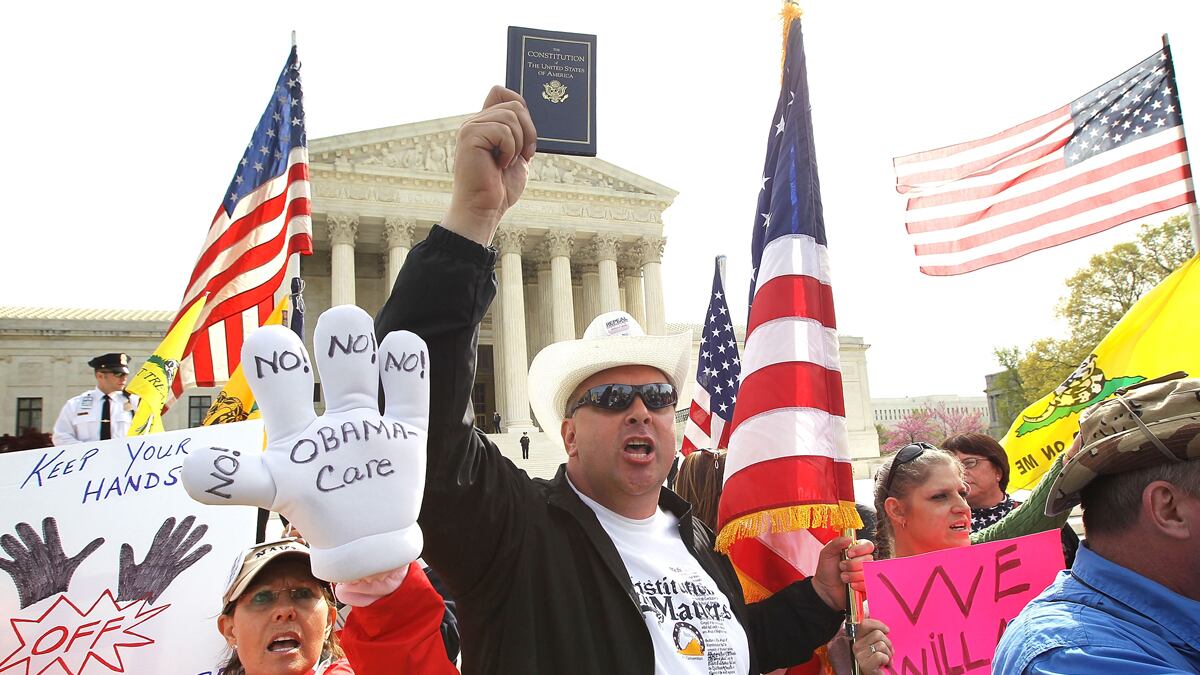On Wednesday afternoon the Supreme Court heard the final round of arguments over the constitutionality of the Affordable Care Act. After sometimes arcane debates over ancient tax law, Commerce Clause precedent, and severability, the justices turned to the constitutionality of increasing funding to Medicaid.
Part of the health-care law’s architecture extended Medicaid eligibility to everyone in the country whose income was within 133% of the poverty line—a significant expansion of the program. When the federal government conditioned states’ receipt of future Medicaid funds on their adhering to the new standard, some states balked—hence today’s suit.
The substantive argument against the Medicaid expansion is considered by legal experts to be far weaker than that against the individual mandate. It’s based essentially on a line in a decision authored by then Chief Justice William Rehnquist in a 20-year-old case called South Dakota v. Dole. Dole involved a challenge by South Dakota to a law permitting the federal government to withhold a portion of highway funds from any state without a minimum drinking age of 21. In delivering the opinion of the Court upholding the law, Rehnquist wrote that at some point “the financial inducement offered by Congress might be so coercive as to pass the point at which pressure turns into compulsion.” Since that ruling, no law has been found to be sufficiently “coercive” to be overturned, but the states in today’s argument are hoping this will be the first.

The states’ attorney, Paul Clement (who also argued against the health law’s individual mandate on Tuesday), got two sentences out of his mouth before a skeptical Justice Elena Kagan stopped him. “Why is a big gift from the federal government a matter of coercion?” Kagan asked. Clement was then bombarded by probing questions from the other liberal Justices, and at one point he admitted that, despite Justice Rehnquist’s reference to a “point” where pressure becomes compulsion, there was no clear defining line. Rather, he argued, “this is a case where it ought to be easy to establish a beachhead [and] say that coercion matters.”
Although Solicitor General Donald Verrilli did a better job arguing his brief for the federal government than he did on Tuesday, he still faced constant skepticism from conservative justices concerned about the possibility that, as Chief Justice John Roberts put it, “the federal government … can take away everything if the states don't buy into the next program.” While Justice Stephen Breyer dismissed this as an impossibility, other justices were not reassured.
Like the individual mandate, Medicaid is a workaround. And what most everyone can agree on is that if the federal government had funded and administered Medicaid on its own, there would be no constitutional problem. But where the individual mandate is new, the Medicaid clause in the ACA is an expansion of a nearly 50-year-old program. And in the jurisprudence of the court, that could make all the difference.






